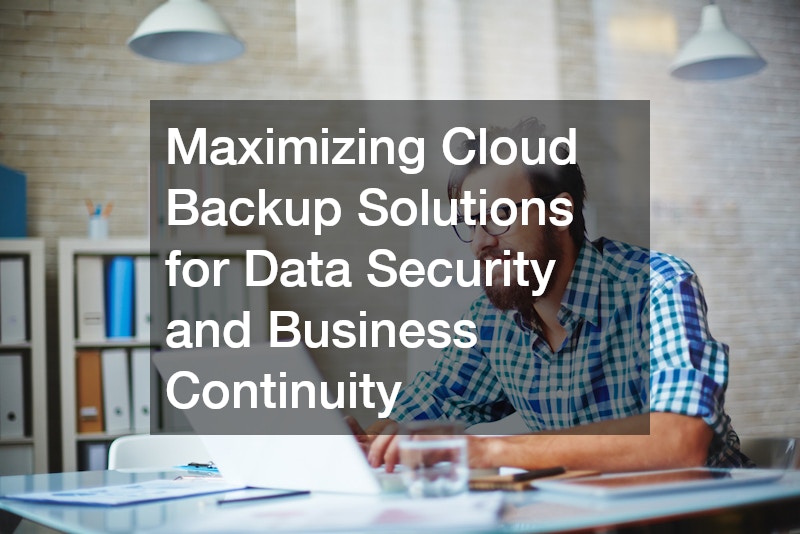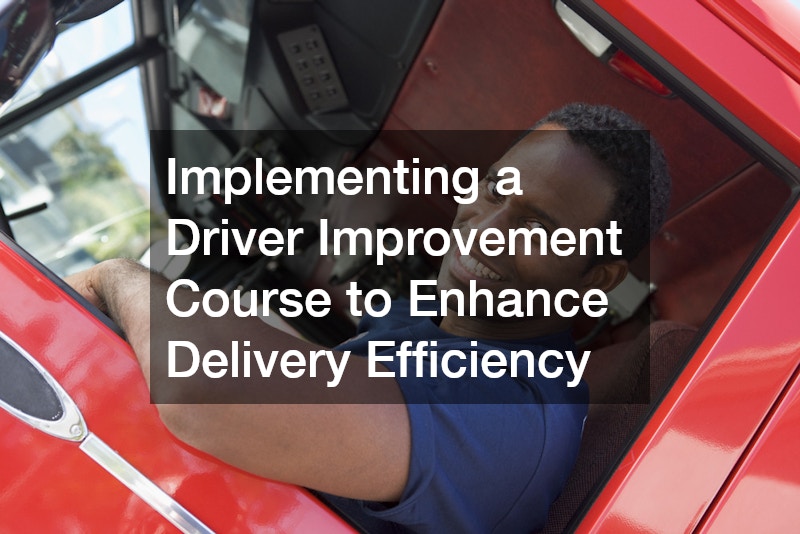In today’s fast-paced business landscape, optimizing your operations is not just about staying competitive—it’s about ensuring sustainability, profitability, and scalability. When you focus on optimizing your business operations, you create a foundation that enhances efficiency across all facets of your enterprise. Your logistics, technology, and infrastructure are central to how smoothly your business functions. From ensuring timely deliveries to safeguarding your data, every decision directly impacts your operational efficiency, cost management, and long-term profitability.
This comprehensive guide will walk business owners through actionable, specific strategies to optimize business operations by leveraging logistics, technology, and infrastructure. You’ll explore how a business broker can facilitate growth, e-waste recycling can aid sustainability, cloud backup solutions secure your data, and much more. Each step will include relevant statistics and expert insights to help you make informed decisions and drive meaningful progress in your business operations.
1. Leveraging a Business Broker for Operational Growth

A business broker serves as a strategic advisor and facilitator, playing a crucial role in your company’s growth strategy. Their expertise extends beyond mere transactions; they help you navigate the complexities of selling, acquiring, or expanding into new markets. By offering valuable insights and advice, a business broker ensures that these processes are more efficient and less prone to costly mistakes. Brokers bring a wealth of knowledge about market trends, company valuation methods, and operational best practices, which empower you to make informed decisions that drive long-term success.
- Evaluate Business Opportunities: A business broker helps identify acquisitions or mergers that align with your operational goals, enabling cost reductions and efficiency improvements.
- Optimize Your Business Structure: A broker can advise on corporate structures that maximize your operational efficiency, reduce liabilities, and streamline decision-making.
- Sell or Upgrade Operations Strategically: If you’re looking to scale or sell, brokers can pinpoint areas for operational improvement to make your business more attractive to potential buyers.
According to IBISWorld, the U.S. business brokerage industry is a robust market, currently valued at $2.4 billion. This substantial valuation highlights the importance of brokers in facilitating strategic growth, mergers, acquisitions, and operational optimization. The industry’s scale and significance underscore the value a business broker brings to companies aiming to refine their operations, maximize their potential, and achieve lasting success in competitive markets.
2. Integrating E-Waste Recycling for Sustainability and Compliance
- Partner with Certified E-Waste Recyclers: Work with local or national recycling companies that are certified to handle electronics disposal according to environmental standards.
- Establish Internal Recycling Protocols: Implement company-wide policies to collect and recycle electronics, such as computers, printers, and monitors.
- Educate Employees: Conduct regular workshops on responsible e-waste disposal and the environmental impacts of electronic waste.
The significance of e-waste recycling is reflected in the market trends as well. According to MarketsandMarkets, the global e-waste recycling market is expected to grow from $49.5 billion in 2023 to $69.3 billion by 2028. This growth highlights the increasing demand for sustainable electronics disposal solutions and the opportunities for businesses to invest in eco-friendly initiatives. By adopting comprehensive recycling strategies, companies not only support a greener planet but also position themselves as responsible and forward-thinking corporate leaders committed to long-term sustainability.
3. Maximizing Cloud Backup Solutions for Data Security and Business Continuity

Data loss is a critical threat that can severely disrupt business operations, resulting in financial losses, downtime, and damage to a company’s reputation. However, cloud backup solutions offer a robust safeguard against data loss, ensuring business continuity, security, and quick recovery even in the face of system failures, hardware malfunctions, or natural disasters. By storing data remotely on cloud servers, businesses can maintain accessibility and minimize the risk of permanent data loss, even if on-site infrastructure is compromised.
- Choose a Reliable Cloud Provider: Select a cloud service with robust encryption, multiple storage locations, and an easy recovery process. Providers like Google Cloud, AWS, and Microsoft Azure offer enterprise-level solutions tailored to your business needs.
- Automate Backup Processes: Set up automated backup schedules to prevent data loss and ensure continuous operations.
- Regularly Test Your Backup Recovery Plan: Conduct recovery drills to ensure that your data backup processes work smoothly during unexpected situations.
According to IDC, businesses that implement cloud backup services reduce the likelihood of experiencing major data disruptions by 25%. This statistic underscores the value of adopting cloud solutions as part of an organization’s IT infrastructure. Cloud backup services not only enhance data resilience but also strengthen overall operational reliability, allowing businesses to focus on growth and strategy rather than worrying about data integrity and recovery concerns.
4. Enhancing Communication with VOIP Services
VOIP (Voice over Internet Protocol) services have become an indispensable communication solution for modern businesses, offering scalable, cost-effective, and integrated communication tools that enhance productivity and collaboration. VOIP services enable voice, video, and messaging capabilities to operate seamlessly over the internet, making it easier than ever to connect with colleagues, clients, and partners across the globe. These services support features like call routing, video conferencing, and mobile integration, ensuring that communication remains efficient and uninterrupted across all aspects of your business operations.
- Invest in a Reliable VOIP Provider: Providers like RingCentral, Vonage, and Zoom offer customizable VOIP solutions that can be tailored to your communication needs.
- Incorporate Video Conferencing Tools: Use features that enable video conferencing to maintain team meetings and client interactions, regardless of location.
- Mobile Integration for Flexibility: Equip employees with tools that integrate with their mobile devices, ensuring communication is maintained on the go.
The growing demand for VOIP solutions is reflected in the market trends. According to Global Market Insights, the global VOIP market is projected to grow at a compound annual growth rate (CAGR) of 9.5% from 2023 to 2028. This growth highlights the increasing reliance of businesses on cloud-based communication solutions that offer scalability, cost savings, and integration capabilities. By investing in a robust VOIP system, companies not only streamline their communication infrastructure but also position themselves to adapt quickly, collaborate efficiently, and scale seamlessly, ensuring long-term operational success and competitive advantage.
5. Optimizing Air Conditioning Systems for Energy Efficiency
Efficient air conditioning systems are no longer just about providing a comfortable working environment; they also play a crucial role in reducing energy consumption, lowering operational costs, and supporting environmental sustainability. Upgrading your air conditioning infrastructure can result in long-term financial savings while promoting a healthier, more productive workspace. By investing in modern, energy-efficient solutions and proactive maintenance, businesses can ensure that their cooling systems are reliable, cost-effective, and environmentally responsible.
- Upgrade to Energy-Efficient Models: Use Energy Star-rated air conditioning systems that consume significantly less electricity.
- Install Smart Thermostats: Smart thermostats optimize cooling schedules based on occupancy and temperature preferences.
- Regular Maintenance: Schedule quarterly maintenance checks to ensure that your system is running at peak efficiency.
According to the U.S. Department of Energy, energy-efficient air conditioning systems can reduce cooling costs by 30% to 50%. These savings demonstrate the potential financial benefits of prioritizing energy efficiency while also highlighting a commitment to environmental responsibility. Investing in energy-efficient infrastructure and proactive system upgrades ensures that businesses reduce their environmental impact, save money, and create a more sustainable working environment. In doing so, companies also strengthen their reputation as environmentally conscious organizations committed to responsible energy practices and long-term sustainability.
6. Improving Commercial Paving for Operational Efficiency
Maintaining a commercial property with sturdy, well-kept paved surfaces is crucial for reducing repair costs, extending the lifespan of infrastructure, and ensuring the safety of both employees and customers. Well-maintained surfaces not only enhance the aesthetic appeal of a property but also contribute to operational efficiency and long-term cost savings. Proactively addressing pavement care and durability ensures that your business premises remain functional, safe, and visually appealing, ultimately safeguarding your investment.
- Hire Experienced Paving Contractors: Investing in professional paving services means working with contractors who specialize in commercial paving projects and understand the specific challenges and requirements of such surfaces.
- Consider Eco-Friendly Materials: Use sustainable materials like permeable pavement to reduce environmental impact.
- Conduct Regular Assessments: Regularly inspect paved surfaces to identify potential issues early and avoid costly repairs.
According to the National Pavement Contractors Association, a properly maintained parking lot or commercial surface can reduce liability claims by up to 60%. By prioritizing regular inspections, using quality materials, and partnering with experienced contractors, businesses not only protect their financial interests but also prioritize safety and operational efficiency. A well-maintained commercial property reflects professionalism, care, and responsibility, ultimately strengthening your brand’s reputation and commitment to safety and sustainability.
7. Investing in a Fork Truck to Streamline Operations
A reliable forklift is a cornerstone of operational efficiency in any warehouse or supply chain, ensuring smooth transportation of goods, reducing downtime, and supporting productivity. Choosing the right forklift model tailored to your specific business needs can significantly optimize your operations, reduce costs, and enhance workplace safety. If you’re considering upgrading your equipment, look for a fork truck for sale that aligns with your warehouse requirements and operational goals, ensuring a seamless fit with your logistics processes.
- Assess Your Needs: Decide on the right capacity, lift height, and type of forklift (electric or gas) based on your warehouse operations and load requirements.
- Regular Maintenance: Implement a strict maintenance schedule to prevent breakdowns and prolong the life of your investment.
- Provide Operator Training: Ensure employees undergo proper forklift training to prevent accidents and maximize productivity.
Investing in the right forklift model and implementing maintenance and training programs not only positions your business for operational success but also demonstrates a commitment to safety, efficiency, and long-term sustainability in an increasingly competitive marketplace.
8. Implementing a Driver Improvement Course to Enhance Delivery Efficiency

Providing a driver improvement course is a strategic investment that significantly boosts road safety, operational efficiency, and overall delivery success. In logistics-heavy industries, a well-trained and reliable driver workforce is vital for meeting delivery timelines, safeguarding assets, and maintaining customer trust. Investing in continuous driver education not only mitigates risks but also enhances fuel efficiency, lowers operational costs, and ensures long-term business continuity. A robust driver improvement strategy showcases your commitment to safety, responsibility, and operational excellence.
- Choose Comprehensive Courses: Include modules on defensive driving, fuel efficiency, and time management.
- Regular Evaluations: Continuously assess driver performance and encourage ongoing professional development.
- Invest in GPS and Route Optimization Tools: Tools that offer route optimization reduce delivery times and increase fuel efficiency.
Investing in comprehensive training, performance assessments, and cutting-edge technologies ensures that your logistics operations run smoothly, securely, and sustainably, giving your business a competitive edge in an ever-evolving market.
9. Maintaining Regular Truck Repair Schedules for Maximum Uptime
Regular truck maintenance is a critical aspect of ensuring the operational efficiency, reliability, and safety of your fleet. A well-maintained truck fleet minimizes unexpected breakdowns, reduces repair costs, and ensures that deliveries remain on schedule. Investing in preventive maintenance and strategic fleet management practices not only extends the lifespan of your vehicles but also boosts overall operational productivity and helps protect your business’s bottom line. Prioritizing truck maintenance reflects your commitment to professionalism, reliability, and accountability in your operations.
- Implement Fleet Management Software: Utilize software solutions to track vehicle performance, schedule maintenance, and manage costs.
- Partner with Reliable Repair Shops: Establish relationships with trusted truck repair services that provide quick turnaround times and expert diagnostics.
- Preventative Maintenance Schedules: Conduct inspections and preventive maintenance every few months to identify wear and tear early.
According to Fleet Complete, businesses that follow regular vehicle repair schedules save an average of 20% annually on fleet costs. This substantial cost saving demonstrates the long-term benefits of proactive maintenance and strategic planning. By leveraging fleet management tools, partnering with reliable repair services, and adhering to preventive maintenance schedules, companies can reduce downtime, lower repair costs, and maintain a more resilient and cost-efficient fleet.
10. Optimizing Delivery Services for Faster and Cost-Effective Operations
Efficient delivery services are a vital component of any logistics operation, directly influencing customer satisfaction and operational costs. Delivering products on time and in good condition not only strengthens your brand’s reputation but also optimizes resource use, minimizes waste, and improves overall operational efficiency. Implementing strategic delivery practices ensures that your supply chain runs smoothly, your drivers are well-utilized, and customers remain satisfied—factors that are essential for sustained business growth and profitability.
- Invest in Route Optimization Software: Tools like Route4Me or OptimoRoute optimize delivery schedules and routes to save time and fuel costs.
- Partner with Third-Party Logistics Providers: Collaborate with companies that specialize in logistics and delivery to handle excess capacity efficiently.
- Implement Real-Time Delivery Tracking: Offer real-time tracking features to customers to improve transparency and reduce customer service inquiries.
Efficient delivery services are not just about cost savings; they also play a crucial role in building trust and loyalty with your customers. Ensuring timely deliveries, maintaining product integrity, and offering clear communication enhance the overall customer experience. By investing in route optimization software, partnering with reliable logistics providers, and implementing real-time tracking, businesses strengthen their supply chain operations, reduce waste and inefficiencies, and ultimately drive higher profitability and customer loyalty.
Optimizing your business operations requires a holistic approach that integrates logistics, technology, and infrastructure. From leveraging the expertise of a business broker to sustainable e-waste recycling practices, and implementing robust cloud backup solutions to enhancing delivery services, every strategy adds value to your operations.
By following these actionable insights, investing wisely, and maintaining strategic planning, you not only reduce costs and improve efficiency but also pave the way for long-term sustainability and growth. Embrace these strategies to transform your business into a more resilient, scalable, and competitive entity in your industry.

